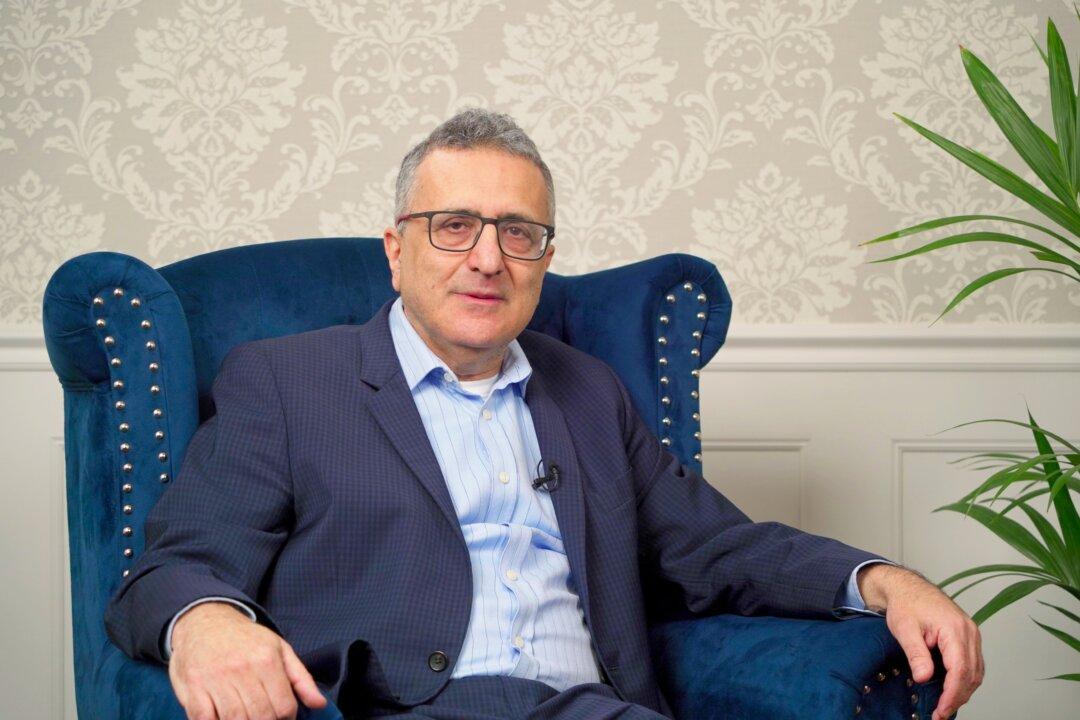The threat of Islamism has been “played down” in the West partly because of identity politics, says journalist and author Daniel Ben-Ami.
He told NTD’s “British Thought Leaders” that the Islamist ideology, unlike Islam as a religion, is a “totalitarian movement” that’s similar to Nazism and Stalinism and “inherently anti-Semitic.”
However, with the identitarian worldview permeating through the West, “we can’t talk about it” because Muslims are considered “inherently oppressed,” he said.e
The anti-Semitism expert said he believes people don’t understand the nature of the Islamist movement.
The Muslim faith is not inherently anti-Semitic. Mr. Ben-Ami said, “Islamism is something different. It’s a political movement, religio-political movement.”
Islamists see the global Muslim community as a political movement rather than a community of faith, “and they see their role as creating an Islamic world order that everyone has to follow,” he said.
“Their view that is that the true Muslims—because they see themselves as true Muslims, they don’t see a lot of Muslims as true Muslims, from that perspective—have to kind of banish this pre-Islamic barbarous view in the world.”
“So they’re the kind of anti-modernity, they’re kind of anti-enlightenment. They’re very hostile to the idea of the nation state, generally speaking, anti-democracy, identitarian, completely hostile to any kind of opposition.
“So I see Islamism as a kind of totalitarian movement, akin to Nazism and Stalinism.”
For Islamists, “Jews are central to their worldview,” Mr. Ben-Ami said.
Institutional Islamists
Among Islamists, there are a small minority of jihadists who are“willing themselves to use violence,” and there are the “institutional Islamists” or “participation Islamists” who “support violence in principle, but themselves do not engage in violence,” he said.“Often, that’s seen as the distinction between the kind of extremists and the moderates. But that’s a bit misleading,” he said.
“Because ... they both subscribe to the same extreme set of ideas.”
Progressivism Feeds Newest Form of Anti-Semitism
According to the anti-Semitism expert, apart from Islamist anti-Semitism, there are far-right kinds of anti-Semitism, which he believes is “pretty small” in most countries; those who see themselves as radicals but see Jews as “epitomising” all problems that exist in the world; and “the newest form of anti-Semitism” that came from progressivism.The progressivism-driven anti-Semitism is “very problematic,” he said.
“And then people often draw the conclusion that Jews because they’re very often successful, ... now it’s seen at least by the kind of identitarian ins as a kind of mark of privilege.”
As a result, the slaughtering of Israelis in the Oct. 7 Hamas terrorist attack last year “doesn’t really count” because the Israelis are seen as oppressors, he said.
According to the same poll, 66 percent of respondents from the same age group believe the Oct. 7 attack was “genocidal in nature,” but 60 percent believe it can be justified by the grievances of Palestinians.
Mr. Ben-Ami said it’s “absolutely fine to sympathise with the Palestinians or be critical of the Israeli government, however, people now ”very often“ see Israel as ”a kind of personification of evil. So they'll talk about Israel as being an apartheid state, ... colonialist, racist, all the rest of it.”
“And once you don’t judge Israel by normal criteria, but you see it as a kind of epitome of evil. I say that is a form of anti-Semitism,” he said.
According to Mr. Ben-Ami, Israel “was condemned twice as much as all the other countries put together” in resolutions of the U.N. General Assembly last year.
“To argue that Israel is as bad as all the 192 [countries] put together in terms of its faults, to me, it shows there’s something very skewed and wrong about the discussion,” he said.
However, Mr. Ben-Ami still believes free speech is “a very important principle,” arguing it’s not only right in principle, it also has practical utilities.
“If people have bad ideas, those ideas should be challenged rather than suppressed,” he said.
“But I think there’s also a practical question, which I think the whole anti-Semitism debate illustrates very well. Because if you ban people from saying anti-Semitic things by using abusive words for Jews, for example, all that tends to happen is that it just takes a more disguised form.”








